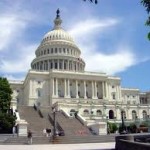It is certainly no surprise to readers of this site that the financial services industry ranks as one of the most reactionary in the U.S. For hundreds of years, it has always been “heads I win, tails you lose” for the individual investor.

Now, the group dedicated to pushing through the adoption of a fiduciary standard acknowledges that its Washington D.C.-based lobbying efforts are failing. This is no surprise for a few reasons:
As the article posted immediately before on this site states, the financial services lobby is the largest in Washington. (See details in “The DOL: An Individual Investor’s Best Friend”) Second, in an election year, all gloves come off, so ill-prepared investor protection groups (and there are only a few) are especially ill-equipped to compete. Even in the best of times, these groups, such as the Consumer Federation, don’t have the budgets, staff and focus and are content to testify before Congressional committees as straw men to offer a countervailing argument, however valid. But before the committees conclude their hearings, the decisions have already been made in favor of the groups with the most money. (As the “DOL Best Friend” article states, the financial services lobby is the largest in Washington.)
So given this reality, here is a letter from the head of the Committee to Adopt the Fiduciary Standard, Roger Gibson,to promote the adoption of pro-investor regulations, which could save investors billions of dollars over their investing lifetimes:
Letter from Roger Gibson of the Committee to Adopt the Fiduciary Standard
“Financial regulatory reform is subject to shifting political winds, and we are not confident that the eventual SEC rule-making will implement a uniform fiduciary standard “no less stringent” than the standard applied currently to investment advisers under the Investment Advisors Act of 1940. The Committee for the Fiduciary Standard is passionate about its commitment to the authentic fiduciary standard, and we are proud of our efforts on behalf of meaningful regulatory reform. We believe, however, that the time has come for us to redirect our efforts from policy makers in Washington D.C. to the investors we are trying to protect.
The CFA Institute recently released the findings of a survey of over 2,700 of its members from across the globe. Compared to 2011, confidence in prospects for improvements in the integrity of global capital markets in the coming year is dropping, from 32 percent of respondents in 2011 to only 22 percent in 2012. When asked about the single-most-serious ethical issue facing the global markets in 2012, survey respondents most often cited “mis-selling of products by financial advisers.” A uniformly applied authentic fiduciary standard would go a long way toward solving this problem.
“Regardless of the outcome of regulatory reform, however, there is nothing to stop financial professionals from voluntarily adhering to the authentic fiduciary standard. Let’s make sure our clients know the difference between a “suitability standard” and the authentic fiduciary standard. As a result of the Financial Crisis, many investors have a low opinion of Wall Street and, by extension, financial professionals in general. Let’s prove to our clients that their trust in us is justified. Please join us in providing to each of your clients a signed statement indicating your firm’s commitment to the five fiduciary principles. Encourage your clients to tell their friends and members of their families that financial professionals exist who are willing to commit to putting their clients’ interests first.
“For a copy of the oath, a sample client letter, and more information on how to participate in the Committee’s “Main Street Campaign”, go to: http://www.thefiduciarystandard.org/fiduciary-oath/. We will post on the Committee’s website (http://www.thefiduciarystandard.org) your firm’s name, location, and website URL, and the total number of clients of your firm who have received the signed pledge. As this list of firms and the number of protected clients grows, we will share the results with policy makers and members of the press.
“My best,
Roger C. Gibson, CFA, CFP
Chairman
The Committee for the Fiduciary Standard”










